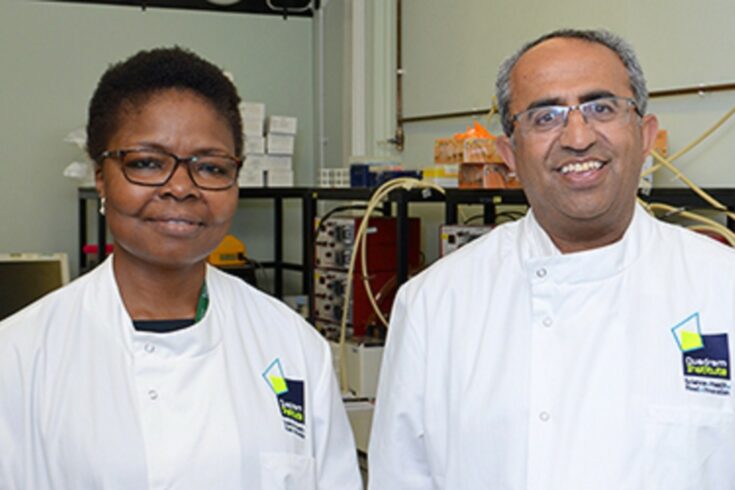Human waste could have much to tell us about potential COVID-19 outbreaks and help the UK and other countries target their response.
UK Research and Innovation-funded projects are examining human waste to increase our understanding of COVID-19 on an individual and city-wide level, and their findings have helped establish a national surveillance system.
A national COVID-19 early warning system
A government-led project, supported by the Natural Environment Research Council (NERC), is providing early-warning of coronavirus outbreaks by monitoring sewage across the country.
Fragments of the virus in wastewater can indicate when and where a spike is happening in a local community, even when people are asymptomatic.
Data will be shared with NHS Test and Trace to inform where there may be new outbreaks, where they may be happening and allow targeted testing.
The NERC-funded National COVID-19 Wastewater Epidemiology Surveillance Programme (N-WESP) is developing sampling, testing and scientific modelling methods to support the national programme.
It is also investigating whether analysis of wastewater can be used to estimate the number of COVID-19 cases in a population.
The virus’s presence in wastewater
The research has proved that fragments of the virus’s genetic materials can be detected in wastewater.
Professor Davey Jones from Bangor University, one of the N-WESP partners, pointed out that N-WESP builds on previous surveillance programmes.
We have been monitoring viruses like norovirus and hepatitis in human sewage for the last decade, as part of a programme to evaluate levels of these viruses in the community. We added COVID-19 to the surveillance list in March.
Professor Jones’ NERC-funded project with Welsh Water and United Utilities (Bangor University) was one of the first to monitor the virus’s presence in wastewater.
Rapid health insights
Dr Andrew Singer from the UK Centre for Ecology and Hydrology is N-WESP’s principal investigator. Singer said:
Wastewater-based epidemiology is an emerging field that can potentially offer rapid insights into the health of a particular population. The research is cost-effective, as well as anonymous and non-invasive for the population surveyed.
By sampling wastewater at different parts of the sewerage network, we can gradually narrow an outbreak down to smaller geographical areas, enabling public health officials to quickly target interventions in those areas at greatest risk of spreading the infection.
Environmental impact
The World Health Organization is clear that the likelihood of coronavirus being transmitted via sewerage systems is extremely low or negligible.
However, the potential for untreated sewage that reaches the environment to contribute to transmission to wildlife will be assessed by a NERC-funded project at Imperial College.
The team will assess ribonucleic acid concentration and viral infectivity from sewage outflows down to rivers and estuaries, and in faeces from wildlife including several species of bats and rodents.
The aim is to help identify potential infection hotspots, allowing authorities to provide more targeted intervention and management measures.
COVID-19 and the gastrointestinal tract
Researchers at the Quadrum Institute, working with the Norfolk and Norwich University Hospital, launched a study (Quadrum Institute) to find out how often and for how long COVID-19 is present in the stool of people who have tested positive for COVID-19.
It has been funded by the Biotechnology and Biological Sciences Research Council.
Initial studies showed that over 60% of COVID-19 positive patients had gastrointestinal symptoms like diarrhoea, nausea and vomiting, and that the disease was in their faecal samples.
The team wants to collect stool and saliva samples from people who have tested positive for COVID-19. They want to find out if and how the virus changes in saliva, the respiratory tract and the gut during infection.
Professor Arjan Narbad said:
This study will allow us to understand the ability of this virus to persist in the gastrointestinal tract both during and after the patient has recovered from symptoms of COVID-19.
Dr Ngozi Elumogo said:
We are discovering new information about this virus all the time and it is important to find out if the virus persists in stool.
This means that we can investigate further the possibility of faecal-oral transmission, and better design methods for minimising transmission.
Last updated: 21 March 2022

